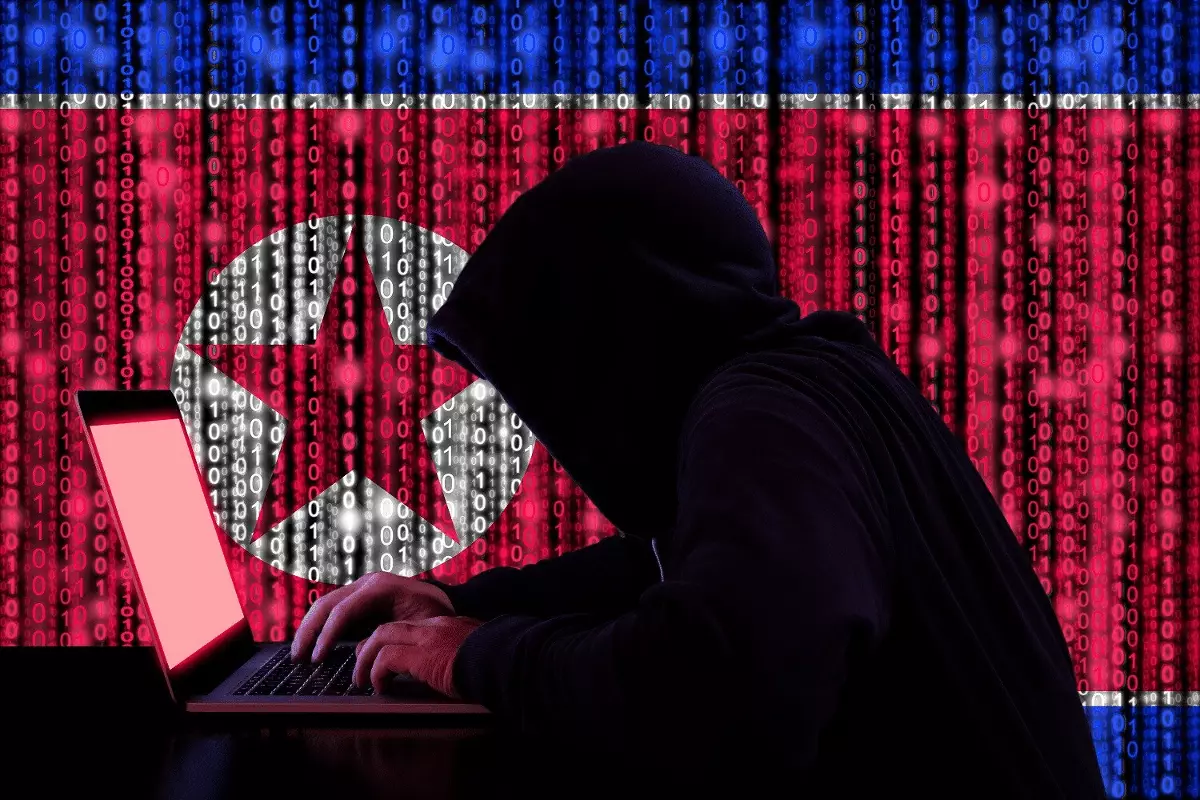The Lazarus Group, a hacking syndicate sponsored by North Korea, has recently made its largest transaction in over a month. According to blockchain analysis firm Arkham, the group transferred $1.2 million worth of cryptocurrency from a mixer to a holding wallet. The transaction involved moving the assets from a coin mixer to obfuscate the ownership of the funds. This comes as a significant development in the ongoing activities of the Lazarus Group.
North Korea has shown a significant interest in the cryptocurrency industry, with estimates suggesting that they have stolen a staggering $3 billion in digital assets. The Lazarus Group, specifically, has been involved in illicit activities within the South Korean market since 2017, and their operations have now expanded globally. In 2022, they were accused of stealing $1.7 billion in cryptocurrency, which accounts for 5% of the country’s economy or 45% of its military budget. The stolen funds serve as a vital revenue source for the North Korean government, enabling them to sustain their operations despite international sanctions.
A coin mixer, also known as a mixing service or tumbler, is a blockchain-based protocol that aims to obscure the origin and recipients of cryptocurrencies. It achieves this by combining the coins of multiple users before redistributing them. In the recent Lazarus Group transaction, 27.371 BTC was received in two transactions before 3.34 BTC was sent to a previously used wallet. The specific coin mixer used in this transaction has not been identified, adding another layer of complexity to tracing the funds.
TRM Labs, a blockchain firm, has released a report indicating that the Lazarus Group may have stolen up to $700 million in cryptocurrency in 2023, with $600 million confirmed through their research. To launder the stolen funds, the group adapts its money laundering methods to evade international law enforcement pressure. They typically compromise users’ private keys or seed phrases, transferring the funds to wallets controlled by the Democratic People’s Republic of Korea (DPRK). The assets are then exchanged for other cryptocurrencies, making it even more challenging to track and recover the stolen funds.
Predictions for the Future
Despite advancements in cybersecurity and international collaboration in tracking and recovering stolen funds, TRM Labs predicts that 2024 will see further disruptions from the Lazarus Group. The group has proven to be one of the world’s most prolific cyber-thieves, constantly adapting their techniques to stay ahead of law enforcement. It is crucial for organizations and individuals to remain vigilant and take necessary precautions to protect their digital assets from such threats.
The Lazarus Group’s recent transaction highlights the ongoing threat posed by North Korea-sponsored hacking syndicates. With their focus on the cryptocurrency industry, these groups have managed to steal billions of dollars in digital assets, serving as a crucial revenue source for the North Korean government. As the international community continues to combat cybercrime, it is essential to enhance cybersecurity measures and improve collaboration to mitigate the impact of these cyber-thieves.


Leave a Reply